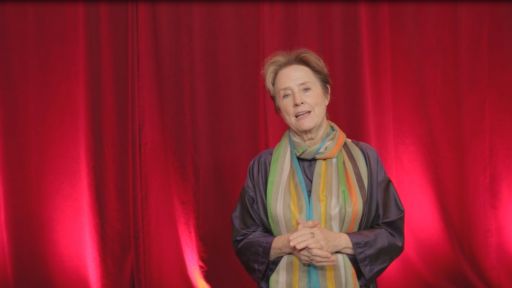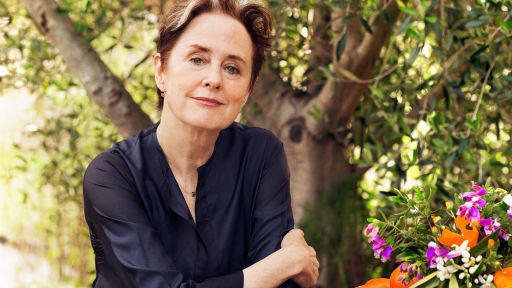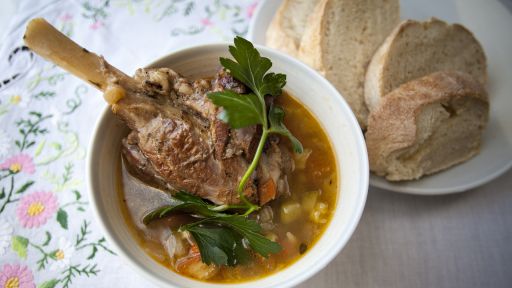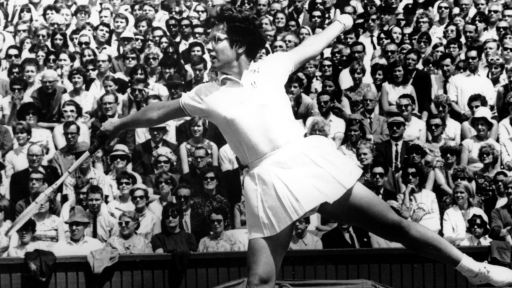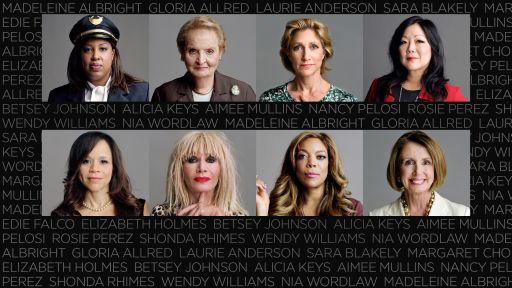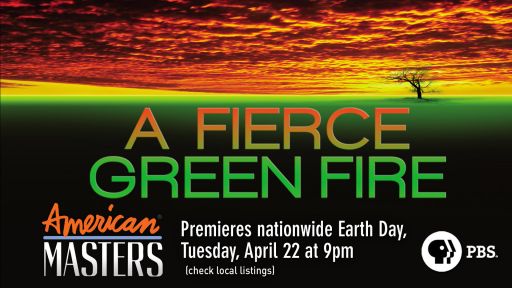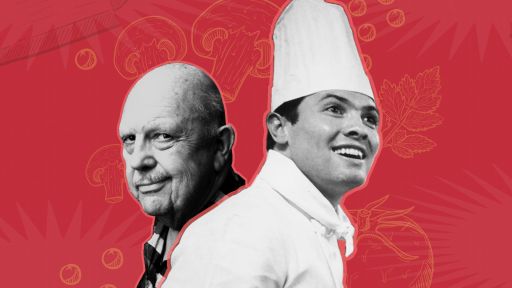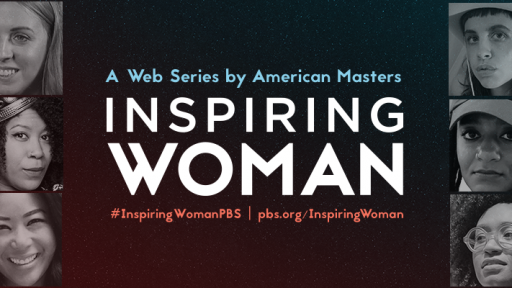Writer and Director Doug Hamilton has answered a few questions regarding his film, Alice Waters and her Delicious Revolution.
Doug Hamilton: One of the things that is exciting, fun, and a bit scary about making a documentary is that no matter how well you plan out your film, it will always change in the edit room. The material will lead you in surprising ways. On this project, I was inspired by watching Alice Waters – and the amazingly talented cooks at Chez Panisse – improvise and be willing to change things at the last minute. Alice believes that all the planning and talent that goes into making a dish will guarantee that it is of a very high quality, but the last-minute refinements – in her case, a bit of salt, lemon juice, or perhaps candied orange peel – can really bring the dish to a whole other level. Given the very real pressure at Chez Panisse of getting out nearly 200 hundred meals a night, that bravery, that confidence to make last minute changes really impressed me. To me, that is the mastery that the series American Masters celebrates.
Q: Did your film change at the last minute?
DH: It did. Towards the end of the edit, I showed the film to Susan Lacy, the creator and executive producer of American Masters. She felt that the opening didn’t quite work to bring people into the film. On most American Masters programs the subject is very famous. Say it’s Leonard Bernstein or Alfred Hitchcock, and the audience already knows the who, what, where, and when of the person’s life. The film often explains the why. In the case of Alice Waters, she is indeed famous in the world of food, has had a huge impact on American culture, but she is not a familiar household name.
That means that the opening this film was difficult because we needed to let the viewer know in a very short period of time: who she was, what she did, and why you should watch this show for an hour. After my meeting with Susan, I remembered this wonderful story that Ruth Reichl, the editor of Gourmet Magazine, had told me about the early days with Alice and Chez Panisse. It is a lovely story about Alice bringing a flat of incredible strawberries onto an airplane and how the smell of these berries drifted through the plane. Suddenly, everyone on the plane was begging Alice for a strawberry. Ruth explains how that is very much what her restaurant did for America. Alice and her quest for simple, really delicious produce – produce that tastes the way it did when we were children – has inspired a revolution in American agriculture and dining.
I wanted to open with this story, but there was now a problem. I had not filmed Alice with strawberries, and where could I get decent looking strawberries in December!
Q: What did you do?
DH: Fortunately I was working with a very talented team led by my field producer (aptly titled, in this case), Camille Servan-Schreiber. Camille called every organic strawberry farm she could think of and managed to locate a few flats of decent berries. We were incredibly lucky, because California had a very warm November and December, which meant that there were some proper strawberries to be found. Now, for many of us who have grown accustomed to seeing strawberries at the supermarket all yearlong, you might ask, Why was this so difficult? But if you really look at those berries in the supermarket, they are big and hard and white in the middle. They are grown with tons of pesticides and look as natural as Dolly Parton does. Alice would not, could not, will not use that kind of produce. So there would be no way of faking it in the opening scene.
Anyway, thanks to Camille – and the pastry chef at Chez Panisse, Alan Tangren – we got about five flats of strawberries. On the day of the shoot, we had to pick through them to select the handful of perfect berries that were worthy of Alice’s standards of excellence. But that is Alice – she will go to extraordinary lengths to get the perfect produce. And that is what makes the difference.
Q: How did this film come about?
DH: Several years ago, I learned that Alice had been invited to open a restaurant at the Louvre in Paris. It was an amazing offer that this American woman would be invited into the seat of French culture to create a restaurant. Some French chefs were offended and appalled. Years ago, there was a wonderful story about a snooty French chef who was asked what he thought of Alice’s cooking, and he sniffed his response, “Zhat is not cooking, zhat is shopping.” I don’t think Alice ever objected to that criticism. For her, the produce is king, whether in the hills of Berkeley or the palace of French kings.
Anyway, I thought it would be wonderful to make a film about Alice opening the restaurant. David Fanning, my boss at the time and the executive producer of Frontline, put me in touch with the right folks at PBS, who agreed that we should make this film. Unfortunately, not un-typically, French government bureaucracy killed the Louvre project shortly thereafter.
PBS was still interested in Alice, however, and I was introduced to Susan Lacy, who, by coincidence, had been thinking about doing a film on her! Susan started American Masters 17 years ago, and it had become the PBS series that really analyzed the lives of great Americans who have influenced our culture. In recent years, she had worked to expand the scope of the show from just performers. They have done “60 Minutes” and Julliard, for instance. Susan wanted to do a chef, and Alice was the obvious choice. I also think it is a real sign of the growing understanding in America of the relationship between food and culture. We really are what we eat – in many more ways than just nutritionally.
Q: Were there other obstacles to making this film?
DH: Yes, filming the perfect peach in season, in the perfect light, is no easy task, and this project depended on that. I have worked as a television producer in news for years, mostly at “PBS FRONTLINE” and “60 Minutes.” I’ve been in some pretty stressful filming situations, but I always thought the stress was related to the high-stake demands of deadlines, breaking news, and the rigor of investigative reporting. I was amazed while filming this project how stressful it could be to film those perfect peaches. The deadline of filming the peach at the perfect moment – which Mother Nature doesn’t give you much control over – was hard. I came to realize that television production, no matter the subject, is by its very nature stressful. It was, in fact, a relief to come back into the kitchen at Chez Panisse where these talented cooks working under deadline were calm, steady, and excellent. The whole staff of Chez Panisse was incredibly generous to us. They let our cameras operate in their cramped spaces when they were under a lot of pressure, and they never seemed to mind.
Q: How did Alice surprise you?
DH: Alice is a remarkable woman. She really does not like speaking in public or being on television. It makes her very self-conscious. She is such a natural person that I think she is uncomfortable being anything other that who she is. Having to perform for a camera feels unnatural to her. Knowing all of this, I was worried that we wouldn’t be able to get her real character on tape, but in the way that is typical of Alice, she generously let us into her world, and I think in time, she grew used to us. Or perhaps just weary, and she knew that the only way to get rid of us was to give us what we needed. Regardless, she was remarkable. And can I just say that getting to hang out in the best kitchen in America – and to get paid for it – was indeed a dream job. I will always thank both Susan Lacy and Alice Waters for that.
Q: Alice puts a big emphasis on kids and food. Have any children seen the film?
DH: Yes, not long after the show was finished, a friend of mine who teaches a high school class on documentaries asked me to show the film. The kids were great. Aside from the fact that they were eating pizza while we watched the film, they totally got it. One student said he never thought about where his food came from and decided to do a film project about his school cafeteria. Another girl said the film made her think about what Virginia Wolf meant when she wrote that all a woman needs in order to write is “a good meal and a place of her own.” Another student remarked that, in this time of grave world issues and homogenization of fast food in American culture, the film reminded him of something that was really great about America. I told them all that I would tell Alice what they had said. She told me, “Have them come to the restaurant, I want to talk with them.” Alice truly is an American Master.
Major funding for Alice Waters and Her Delicious Revolution is provided by Feast it Forward.
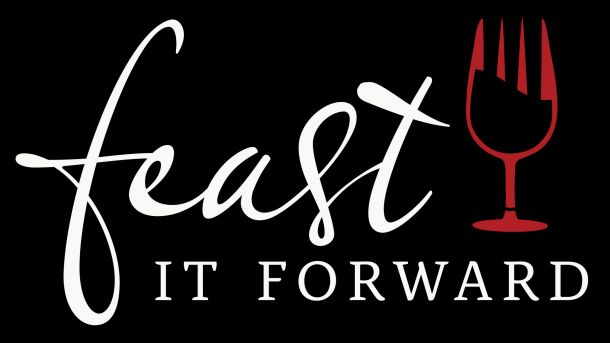
Major support for American Masters is provided by AARP. Additional funding is provided by the Corporation for Public Broadcasting, Rosalind P. Walter, The Philip and Janice Levin Foundation, Judith and Burton Resnick, Ellen and James S. Marcus, Vital Projects Fund, Lillian Goldman Programming Endowment, The Blanche & Irving Laurie Foundation, Cheryl and Philip Milstein Family, The André and Elizabeth Kertész Foundation, Michael & Helen Schaffer Foundation and public television viewers.

